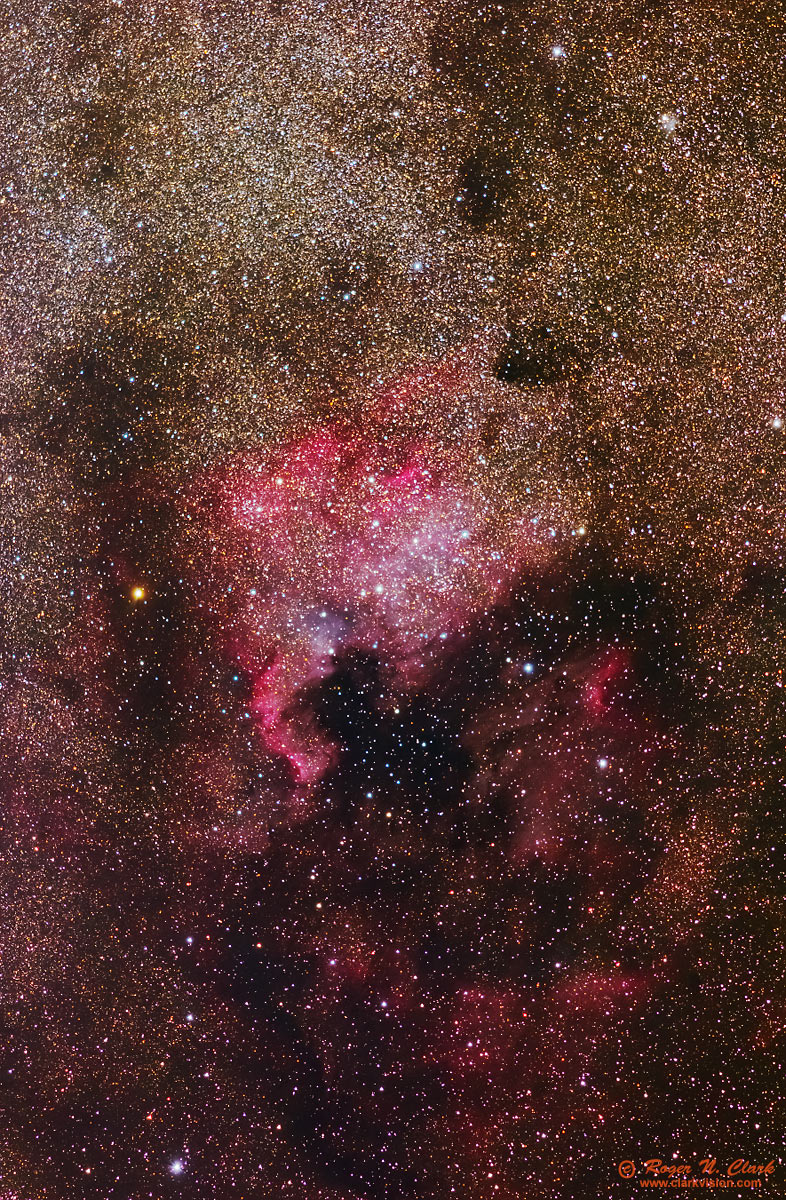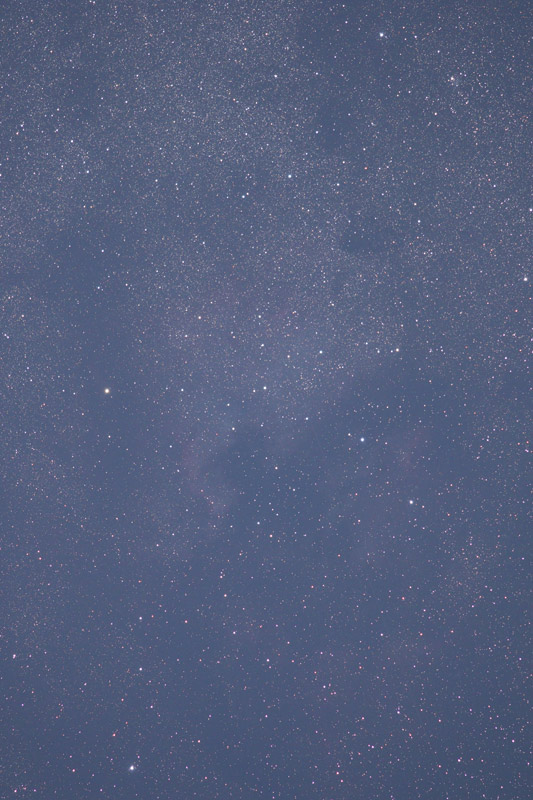| Home | Galleries | Articles | Reviews | Best Gear | New | About | Contact | Gallery Index | Previous |
Next |

| Home | Galleries | Articles | Reviews | Best Gear | New | About | Contact | Gallery Index | Previous |
Next |

The region around the North America nebula, NGC 7000, shows dark and orange dust, and hydrogen emission nebulae (reds, pink, magentas).
Technical. This image was obtained with a Canon 7D Mark II 20-megapixel digital camera and a Canon 200 mm f/2.8 L lens at f/2.8 and ISO 1600. No dark frame subtraction, no flat fields. Tracking with an Astrotrac and no guiding. The total exposure was 52 minutes: 52 one-minute exposures. Full image, no crop.
The Exposure Factors, CEF, CEFA are measures of the relative amounts of light received from a subject. It can be used to fairly compare wildly different lens/telescope apertures and exposure times. For this image:
This image was made with the first quarter Moon high in the sky, which added a lot of light to the night sky brightness. But that added light was subtracted in post processing revealing the faint nebulae in the area. A single image with the scatetred moonlight looked like this:

Modern DSLRs like the 7D Mark II include on sensor dark current suppression and low fixed pattern noise at ISOs around 1600 and higher, making no need for dark frame subtraction. Modern raw converters correct for light fall-off and also correct for hot/dead/stuck pixels. This makes processing low light images easy: simply align and average.
To learn how to obtain stunning images like this, please visit my Extensive Articles on Photography .
See my review of the Canon 7D Mark II and why it is so good for astrophotography: Canon 7D Mark II sensor analysis.
Keywords to this image = astrophoto-1 nebula night low-light digital_astro canon_7d2
Image ID: north-america-nebula.c07.25.2015.0J6A4162-213-c-1200vs.jpg
| Home | Galleries | Articles | Reviews | Best Gear | Science | New | About | Contact |
Last updated December 20, 2025